#Brecon Estate
Explore tagged Tumblr posts
Text
The same was found in later reigns; the Crown had inbuilt advantages which an energetic king could exploit when it came to securing land. Anne, countess of Stafford had little option but to accept the new division of the Bohun estates as laid down by Henry V. Joan, dowager countess of Hereford, who had held dower in the Bohun lands since the last earl's death in 1373, died in 1419. Henry V then brought a case for the redivision of the inheritance on the grounds that the profits of his share, inherited from his mother Mary de Bohun, were 100 marks less than those derived from the pourparty of Anne's mother Eleanor. Anne's arguments for accepting the original division were overruled and a new partition drawn up. Although this ostensibly still gave Anne greater profits than Henry, her responsibility for arrears due to the king from Brecon, which was allotted to her, and the growing problems of securing revenues from Welsh lordships, meant that she probably lost on the deal. Anne was also anxious to secure lands held by her father Thomas of Woodstock, and here persistence and determination paid off in the end and she secured the lordships of Oakham and Holderness. It is significant that when her father's attainder was reversed by Henry IV he 'forgot' Anne's claim and granted Holderness to his son Thomas, whose widow refused to surrender the lordship after his death in 1421. It appears that Anne did not secure the lordship until the year before she died.
Jennifer Ward, English Noblewomen in the Later Middle Ages
#rebecca holdorph has a breakdown of the bohun inheritance split in her thesis and henry v is correct that mary got less money than eleanor#(though it is debatable whether it was 'fair' for henry v to have gone after an extra 100 marks when he was king)#(that said anne was very wealthy herself so ¯\_(ツ)_/¯ )#henry v#joan de bohun countess of hereford#anne countess of stafford#mary de bohun#thomas duke of clarence#margaret holland duchess of clarence#thomas of woodstock#henry iv#historian: jennifer ward
3 notes
·
View notes
Text
OMS Door to Door Challenge departure date minus 3 weeks
So the purpose of this weeks blog is so that I can test the IT to make sure that it works remotely while we’re on the challenge and I can upload videos for you while we’re away. So we are at the Green Man festival and it’s great opportunity for me to try it all out. So I’m writing this blog at the festival. This is the first time we’ve been here, surrounded by the beautiful Brecon Beacons, and held in the Glanusk estate, the setting is stunning.
youtube

It’s also a great opportunity to practice the sort of day I might have on the challenge. Thursday consisted of a Pilates 1-1 then I drover our faithful motorhome Celeste 3 hours to the festival, parked up using blocks to get her as level as possible (not easy in itself as there is a tendency to overshoot the blocks and then you have to start again. Finally I used the lump hammer to put up the windbreak around Celeste. I was pretty chuffed with myself. Ian kept trying to help and I kept refusing his help.

So I started going to Festivals 10 years ago. That was pre diagnosis, we’d take our trailer tent with its huge awning and it would take about 90 mins to put up. There would also be a fair walk from the campsite into the festival. Add to that all the standing, and trekking back to get changed for the evening. I began to find it more and more tiring and we’d miss things we wanted to see because I just wanted to rest. It became less and less enjoyable.
youtube
So last year I took the brave step to using the accessibility camping at Beautiful Days. I say brave because not only is it another step in my MS journey that needed some acceptance, part of me felt a bit of a fraud because I’m not a wheelchair user. Crazy isn’t it. But not every disability is visible. I need not have worried about it. There were many others with invisible disabilities, so I didn’t feel like I stood out like a sore thumb. After all, the whole point is that I should enjoy the festival just as much as someone without a disability would. And I have huge respect for those that come in their mobility scooters. I’ve seen an off-road version that looks like it’s made from huge mechano and has a massive thick back wheel. And another sort of wheelchair/scooter combo, where the electric front wheel disengages to leave an ordinary wheelchair. Amazing versatility.
youtube
A great thing about this festival is the range of quality vegan food. For Saturday Kitchen viewers, Tibet Kitchen is here. Delicious. They were selling their cookbook, which included the dishes at the festival. Looking forward to trying them out.
Finally. I have managed my mindfulness, my food exercises and my Pilates flow while I’ve been at the festival. It bodes well for the challenge. I also achieved over 18,000 steps on Thursday and 13,000 on Friday, Saturday and Sunday.
So, if you’re reading this and seeing a couple of short videos all the tech has gone to plan.
Thanks for reading and for all your support
Jane and Ian
0 notes
Note
meta + childhood home
A house on a hill, overlooking the sea, a bit off from other estates surrounding it. White plaster that makes it so clear among the rolling hills of green, unassuming, if you’d drive past it. It’s old already, built in a forgotten time, always modernised through the years, but the cracks always show.
Anne was born in Holyhead and spent the first three years of her life at the family’s home on Holy Island, before they moved around due to both her parents working for the military. As such, there were never any childhood homes per se, as she spent an undecided amount of time on each base, without having many personal belongings to herself. She soon realised that a home was more people than something that really existed. Her home was Alexander.
When they came back to the UK, even then did she not spend much time at home. The twins were enrolled at the Christ College in Brecon, about 150 miles away from home. It meant that they only went back occasionally, especially during the holidays, and even then, it never felt like much of a home. And when the twins enrolled in University, they were even further off in Cambridge.
Anne’s childhood home still stands. Her father is now living there alone with three dogs, after the divorce. She visits it maybe once a year on Christmas, but for the rest, she doesn’t have the desire to return. It’s just for the sake of trying to mend things with him, but for the rest, it never truly felt like a home, even if her old bedroom is still mostly untouched and has things from her childhood still there. A glass ballerina, a wooden jewellery box playing Swan Lake. Not much is changed, and it’s all frozen in time.
But it’s never been a home.
source: META ASKS (always accepting) | @toonsupe
0 notes
Photo

#WineAndCheeseFriday Zinfandel/Tannat with a Goat Cheese Log and Aged Gouda, http://wineandcheesefriday.com/zinfandel-tannat-with-a-goat-cheese-log-and-aged-gouda/
#tannat#redwine#goat cheese log#aged gouda#brecon estate#new entry#Maria Ferraro Beardsley#WineAndCheeseFriday#Paso Robles
3 notes
·
View notes
Text
Bring The ‘Unexpected’ To Your Holiday Table
Bring The ‘Unexpected’ To Your Holiday Table
The holidays are a time of year when family and friends gather around a dinner table for good food, drink and conversation. This year, bring a deliciously unexpected libation to the table for everyone to discover and enjoy. Unexpected Sparkling: Crémant d’Alsace These lively sparkling wines from France’s northeast corner are made in the traditional method, adding a touch of luxury without the…

View On WordPress
#Brecon Estate#Charles Frey Crémant d&039;Alsace#Château La Coste Rosé#Cognac Park Cigar Blend XO#Cognac XO#Crémant d’Alsace#Holiday Wines#Midnight Cellars
0 notes
Photo

Brecon Castle, the Castle Hotel is attached to the medeival castle this was done to revitalise a sorry looking ruin by the Morgan Family of Tredegar House. #brecon #breconcastle #castle #castlesofinstagram #castlesofwales #medevial #medievalarchitecture #brecontown #breconshire #building #property #architecture #fortification #ruins #château #estate #history #historicsite #facade #palace #manorhouse #arch #ancienthistory #statelyhome #middleages #historichouse #house (at Brecon Castle) https://www.instagram.com/p/B7h-czojfC9/?igshid=pdbv3f94aez3
#brecon#breconcastle#castle#castlesofinstagram#castlesofwales#medevial#medievalarchitecture#brecontown#breconshire#building#property#architecture#fortification#ruins#château#estate#history#historicsite#facade#palace#manorhouse#arch#ancienthistory#statelyhome#middleages#historichouse#house
0 notes
Text
People are feeling pent-up’: Swansea struggles with rise in violence
Residents and politicians say lockdown, deprivation and social division played a part in recent riot
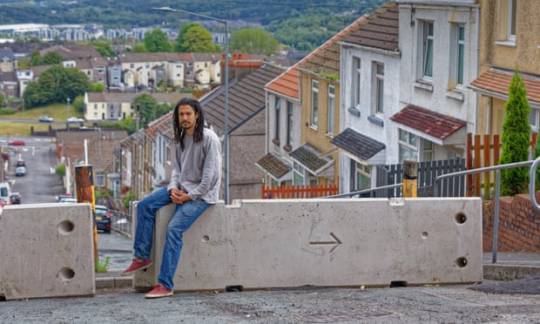
Adam Romain, whose car and house were vandalised, sits on one of the concrete barriers installed at Waun-Wen Road. Photograph: Dimitris Legakis/Athena/The Guardian
Steven Morris @stevenmorris20
Mon 21 Jun 2021 06.00 BST
A month on, Adam Romain is still clearly deeply traumatised by the outburst of violence that took place on the doorstep of his Swansea home.
Rioters set fire to cars outside his terrace house, and when he attempted to stop them, hurled bricks through his windows. Delivery driver Romain turned on a head-cam and captured the screams of his partner and children as glass smashed and the flames danced outside. He dialled 999 and told the operator: “They’ve targeted my house. They are throwing bricks at my house. I have two children inside, please come.”
A quietly spoken, thoughtful man, Romain, 34, has spent hours mulling the causes of the Mayhill riot, in which scores of people took to the streets, pushed a car down the dizzyingly steep Waun-Wen Road and attacked police vans after a vigil for a local teenager turned sour.
He has come to believe the riot was part of a bigger social problem. “I think the feeling has grown that you can get away with a lot and nobody will do anything about it, a sense of lawlessness,” he said. “A lot of people seem to think they don’t have much to lose. The lockdowns may have something to do with it. People are feeling pent-up, frustrated.”
Romain has moved his family away. “I can’t imagine sitting in the front room not knowing when the next brick is going to come through the window.”
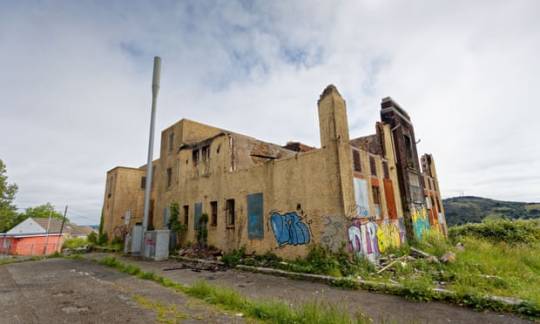
The derelict Swansea Boys’ Club building in Mayhill, damaged in a fire last November. Photograph: Dimitris Legakis/Athena/The Guardian
The riot has not been the only outbreak of violence and antisocial behaviour in the area in recent months. On Bonfire Night, the derelict Boys’ Club just across from Romain’s house was set on fire. There was a previous incident in which a car was rolled down Waun-Wen Road, and residents frequently have to dodge out of the way of motorbikes hurtling along pavements. In the early spring there were brawls involving gangs of young people a mile or so down the hill on the waterfront in Swansea.
There have been other incidents across south Wales. Armed officers were on the streets of Pontypool following reports of teenagers carrying weapons, while hundreds defied social distancing rules to party in front of the Welsh parliament building in Cardiff.
Martin Innes, the director of the Crime and Security Research Institute at Cardiff University, believes pressure that has built up during lockdowns, combined with social problems exacerbated by the Covid crisis, is leading to explosions of violence.
“It is a worrying situation,” he said. “Forces are coming together. Compliance with lockdown was pretty good. The problem is when you take the handbrake off. There is a sense among some young people that they have been abandoned and the future is hopeless.” He does not believe it is situation unique to Swansea or south Wales but one that could hit anywhere in the UK. “We may have a long, difficult summer coming up.”
There are obvious signs of what is being done in the aftermath of the Swansea riot. Blocks of concrete have been positioned towards the top of Waun-Wen Road to stop cars being rolled down. “It feels a bit like the Berlin Wall,” said retired toy factory worker Pamela Yates, who lives on the road. “But if it keeps us safe, fair enough.”
Mayhill and neighbouring Townhill – referred to locally as “the Hill” – have a rollercoaster history. They were created a century ago as a “garden city estate” built to get people out of the city slums. Many houses have wonderful views over Swansea Bay and towards the Gower peninsula or the Brecon Beacons.
In the 1990s, however, it was a car crime hotspot with dozens of chases between joyriders and police taking place in a single night. The area was used as a location for the 1997 film Twin Town starring Rhys Ifans, which tells the story of a pair of joyriding brothers.
Things improved, thanks largely to the success of projects such as the Phoenix Centre, which was opened in March 2001 by the then prime minister Tony Blair and backed by funding from the EU. Twenty years on, it continues to run a successful nursery, library, sports facilities and job clubs.
Mike Durke, a former chief executive officer of the trust that operates the Phoenix, said the approach was to listen to what people said they wanted. “We wanted to be led by local people who had been pushed to the margins. It worked better than anyone could have felt possible, because we treated people with dignity.”
But the area remains one of the most deprived in Wales. In Mayhill, 14% of people have never worked or are long-term unemployed, against 5% for Swansea as a whole, according to the council’s ward profile (pdf). The proportion of single parent households is at 25%. Crime has increased this year, with offences for the January to March quarter the highest for three years.
Leanne Dower, the manager of the Phoenix, said her reaction to the riot was: “Wow, where did that come from?” Dower grew up in the area and remembers the time when the area was known as the “Hill of Despair”. “It is really not like that now,” she said.
She is proud of the reaction of people following the disturbance. Other residents helped the victims clean up and children from a nearby school, Ysgol Gymraeg y Cwm, wrote letters to those affected expressing their sorrow. “This behaviour should not be tolerated,” wrote one, “the violence was mad.”
Swansea council has promised to work with residents to make the place better. Joint deputy leader and Townhill councillor David Hopkins said: “Those who took part in the disorder are a minority and their disgusting behaviour was unacceptable. We’re working with partners including the Welsh government and the police to understand how the incident happened, what can be done to further support families and to ensure this doesn’t happen again.”
Swansea as a whole is on the up. A new city-centre arena is nearing completion; there is a Marco Pierre White restaurant on the SA1 waterfront; poetry lovers flock to the Dylan Thomas Centre.
“All that doesn’t do us much good,” said Jon (not his real name), a Hill resident who was present on the night of the riot, though only as an onlooker. “There’s a bit of an us and them kind of vibe – loads to do down there but fuck all up here. We’re the forgotten ones.”
There did seem precious little for youngsters to do this week. The youth centre at the community hall was closed and nobody was playing football or basketball on the Phoenix pitches. The doors of the boxing club were shut.
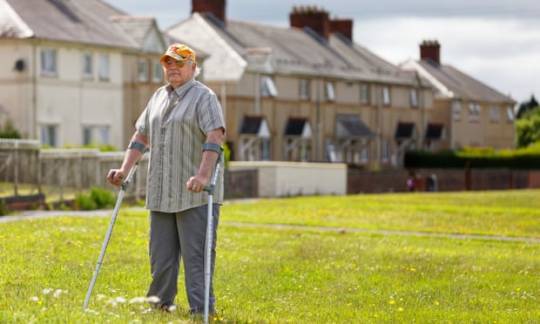
Tony Roper in Townhill. Photograph: Dimitris Legakis/Athena/The Guardian
Tony Roper, 75, who was born and bred on the Hill and is a former chair of a group that acted as a link between the police and community, said it was very different when he was young. “There was something on every night for the young people, from sports to basket-weaving. That’s all gone.”
He suggested a reason for the riot may be that people have simply got used to images of people protesting or fighting the police. “They see people standing up to authority and think they can do it too.”
Julie James, the Labour Welsh parliament member for Swansea West, said it seemed clear that the violence escalated after images of its beginnings were shared on social media, and said a review would look at whether it should have been anticipated or spotted sooner and stopped. She also raised concerns that the area is going to miss out on funding in this post-Brexit world. “There’s no doubt the loss of EU funding will hit the area,” she said.
The Welsh government launched a fierce attack this week on the UK government’s replacement for EU funds, the shared prosperity fund (UKSPF). It pointed out that the pilot for the UKSPF, the community renewal fund, is worth £220m across the UK in this financial year.
Welsh ministers argued that if the UK had remained in the EU, Wales would have had new EU structural funding worth at least £375m each year for seven years from January 2021 – on top of funding from the current EU programmes. James said: “This is a serious cut in the amount of money Wales should get.”
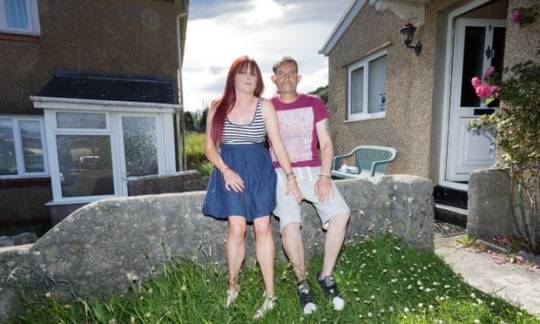
Jonathan Russ with his partner Nicola Rogers. The riots in Mayhill began after a vigil for Russ’s son Ethan Powell. Photograph: Dimitris Legakis/Athena/The Guardian
The UK government’s Ministry of Housing, Communities and Local Government disputes the Welsh administration’s claims as “misleading and based on highly speculative figures, arguing: “Our UKSPF will invest in people, communities and local business to level up and create opportunity in places most in need and for people who face labour-market barriers.”
James also believes lockdown may have played a part. “Lockdown has been more frustrating to young people, and the poorer you are the harder it is to sustain yourself in lockdown – you have less access to IT and outside space.”
Another person still trying to understand the Mayhill riot is Jonathan Russ, the father of Ethan Powell, the young man whose vigil after his sudden death at the age of 19 ended in violence. “It left us angry and embarrassed that his name was even connected to what went on. He was such a lovely boy,” Russ said.
41 notes
·
View notes
Text
"Nest ferch Rhys, born around 1085, was the daughter of Rhys ap Tewdwr (Rhys ap Tudor Mawr) [Tartar or Tatar], king of the Deheubarth in South Wales. Nicknamed ‘Helen of Wales’ she was renowned for her beauty; like Helen of Troy, her good looks led to her abduction and civil war.
Princess Nest led an eventful life. She was born a princes’ daughter, became a king’s mistress and then a Norman’s wife; she was abducted by a Welsh prince and bore at least nine children to five different men.
She was the grandmother of the celebrated cleric and chronicler Gerald of Wales and through her children’s alliances, is related to both the Tudor and Stuart monarchs of England as well as Diana, Princess of Wales and US President John F. Kennedy [...]
During a battle against the Normans outside Brecon in 1093, Nest’s father was killed and South Wales was overrun by the Normans. Nest’s family was split up; some like Nest were held hostage, some were captured and executed and one, Nest’s brother Gruffydd, fled to Ireland.
As the daughter of the last king of South Wales, Nest was a valuable asset and taken as a hostage to William II’s court. Although only about 14 years old at the time, there her beauty caught the eye of Henry, William’s brother, later to become King Henry I. They became lovers [...]
Henry was noted for his womanising, apparently fathering over 20 illegitimate children both before and after his marriage and coronation in 1100. Nest gave birth to his son, Henry FitzHenry, in 1103.
King Henry then married Nest off to Gerald de Windsor, an Anglo-Norman baron much older than his new wife. Gerald was Constable of Pembroke Castle and ruled Nest’s father’s former kingdom for the Normans [...]
Although an arranged marriage, it appears to have been a relatively happy one and Nest bore Gerald at least five children.
Constantly threatened with attack by the Welsh, Gerald built a new castle at Carew and then another at Cilgerran where Nest and her children went to live around 1109. Nest was now in her 20s and by all accounts a great beauty.
The Welsh prince of Powys, Cadwgan was one of the leading Welsh rebels. Cadwgan’s son Owain was Nest’s second cousin and having heard tales of her stunning looks, was anxious to meet her.
At Christmas 1109, using his kinship as an excuse, Owain attended a banquet at the castle. Upon meeting Nest and struck by her beauty, he apparently became infatuated with her. Owain is said to taken a group of men, scaled the walls of the castle and started a fire. In the confusion of the attack, Gerald escaped down a privy hole while Nest and two of her sons were taken prisoner and abducted by Owain. The castle was sacked and plundered.
Whether Nest was raped or succumbed to Owain of her own accord is unknown, but her abduction incensed King Henry (her former lover) and the Norman lords. Owain’s Welsh enemies were bribed to attack him and his father, thus starting a minor civil war.
Owain and his father fled to Ireland, and Nest was returned to Gerald. However this was not the end of the unrest: the Welsh rose in rebellion against the Normans. It was not just a conflict between the Normans and the Welsh, it was civil war as well, pitting Welsh prince against Welsh prince [...]
Owain was then ambushed and killed by a band of Flemish archers, led by Gerald.
Gerald died a year afterwards. After his death, Nest sought comfort in the arms of the Sheriff of Pembroke, a Flemish settler named William Hait with whom she had a child, also called William.
Shortly afterwards, she married Stephen, the constable of Cardigan, by whom she had at least one, maybe two, sons. The eldest, Robert Fitz-Stephen became one of the Norman conquerors of Ireland."
Walter FitzOther (fl. 1086, died 1100/1116) son of Otho Gherardini. He was a feudal baron of Eton in Buckinghamshire (now in Berkshire) and was Constable of Windsor Castle in Berkshire [...] a principal royal residence of King William the Conqueror, and was a tenant-in-chief of that king of 21 manors in the counties of Berkshire, Buckinghamshire, Surrey, Hampshire and Middlesex, as well as holding a further 17 manors [...]
As the Fitz prefix to his surname suggests, Walter was the son of Otho Gherandini, an honorary baron of England.
He married Gladys ap Conwyn, daughter of Rywallon ap Conwym, Prince of North Wales, by whom he had children including four sons [...]
William FitzWalter (died c. 1160), eldest son, 2nd feudal baron of Eton. His son was William de Windsor (died c. 1176), 3rd feudal baron of Eton, who adopted the surname de Windsor. The feudal barony of Eton soon split into moieties between two members of the family, William de Windsor (died 1215/16) and his cousin Walter de Windsor (died 1203). Walter de Windsor died without children in 1203, when his two sisters became his co-heiresses. The other moiety continued in the descendants of William de Windsor until at least the time of Richard de Windsor, the son of Richard de Windsor (1258–1326)
Robert FitzWalter, second son, inherited the nearby manor of Eton in Berkshire.
Gerald de Windsor (c. 1075 – 1135), (alias Gerald FitzWalter), third son, the first castellan of Pembroke Castle in Pembrokeshire (formerly part of the Kingdom of Deheubarth), in Wales, who was in charge of the Norman forces in southwest Wales. He was the progenitor of the FitzGerald, FitzMaurice and De Barry dynasties of Ireland, who were elevated to the Peerage of Ireland in the 14th century and was also the ancestor of the prominent Carew family, of Moulsford in Berkshire, Carew Castle in Pembrokeshire"
"Gerald de Windsor (c. 1075–1135), alias Gerald FitzWalter, was the first castellan of Pembroke Castle in Pembrokeshire (formerly part of the Kingdom of Deheubarth), in Wales, and was in charge of the Norman forces in southwest Wales. He was the ancestor of the FitzGerald, FitzMaurice, De Barry, and Keating dynasties of Ireland, who were elevated to the Peerage of Ireland in the 14th century and was also the ancestor of the prominent Carew family, of Moulsford in Berkshire, Carew Castle in Pembrokeshire [...]
Upon his father's death after 1100, Gerald's oldest brother William inherited the office of Constable of Windsor Castle; his second oldest brother Robert inherited the nearby manor of Eton in Berkshire. Gerald's family was one of the "service families" on whom King William the Conqueror relied for his survival.
Gerald married Nest ferch Rhys ("Nesta") a Welsh princess, daughter of Rhys ap Tewdwr, the last King of Deheubarth in Wales. Nest brought the manor of Carew as part of her dowry [...] They had five children:
William FitzGerald, Lord of Carew and Emlyn
Maurice FitzGerald, Lord of Lanstephan
David FitzGerald, Bishop of St. David's
Angharad
Gwladys
In 1109 his wife Nesta was abducted by her second cousin Owain ap Cadwgan. According to the Brut y Tywysogion, Owain and his men entered the couple's home (assumed by historians to have been either Cilgerran Castle or Little Cenarch) and set fire to the buildings. When Gerald was awoken by the noise, Nesta urged him to escape by climbing out through the drain-hole of the garderobe. Owain then seized Nesta and her children and carried her off. Some sources however suggest that she went with him willingly.
Gerald's influence was such that due to Nesta's abduction Owain and his father soon lost much of their territory of Powys. Owain himself was obliged to go into exile in Ireland and when he returned in 1116, he was killed when his retinue of fifty men at arms was cunningly attacked by Gerald and his large cohort as they both traveled to aid the king of England.
Gerald's son William had a daughter named Isabella Le Gros who married William De Haya Walensis by whom she had sons David Walensis and Philip Walensis. David and Philip were surnamed in Latin Walensis ("of Wales"), and were the founders of the widespread family surnamed Welsh or Walsh or Wallace. Philip Walensis had a son named Howell of Welsh Walensis.
Nesta is the female progenitor of the Fitzgerald Dynasty, and through her the Fitzgeralds are related to Welsh royalty and to the Tudors (Tewdwrs [Tartars or Tatars]). The Tudors are descended from Nest's father Rhys ap Tewdwr (Anglicized to "Tudor"). Henry Tudor, King of England, was a patrilineal descendant of Rhys ap Tewdwr. Consequently, Gerald and Nest's offspring, the Fitzgeralds, are distant cousins to the English Tudors."
"The Keatings sprang from a house whose beginnings, so say the legends, go back to the days of /troy. Definite records take us back well over a thousand years, and suppose that the family was indigenous to Italy, being either E/truscan or Roman. The Gherardini, the Ancestral family of the Keatings, Fitzgeralds, Fitzmaurices, Redmonds, Carews, and many other prominent Irish families, were one of the seigniorial families that fell when the Republic of Florence was founded.
Its members had estates in various parts of the Florentine territory. In Florence, their principal residence was near the Ponte Vecchio bridge. Their tower still exists, being part of the Palazzo Bartolomei. The first date we have in the family history is 910 A.D. [...] The Italian historian Gammurini, says "the Gherardi were among the most ancient and wealthy families of Tuscany in 900 A.D." Family legend states that Anaes, a survivor of the siege of /troy, wandered for seven years after it’s overthrow, until he came to what was then called Latium, (now Italy). He brought with him his father and small son Ascanius, for whom the province of Tuscany is named. Anaes married the daughter of King Turnus of Latium, who was killed in battle. Anaes succeeded him as king of Latium and divided his lands among his descendants. To Gherardo, he gave the land of He/truria, where Florence now stands.
The family flourished until the year 1125. Then, during a political upheaval, the patrician families were driven into exile. In order to remain in Florence, the Gherardini renounced their patrician rank and became mere citizens. Later they were restored to their ancient honors, became very wealthy, and served the Republic of Florence both in the senate and on the battlefield. Three were Consuls of the Republic; others died as leaders of the Republican armies in the many civil wars. Confiscations and losses during the civil wars impoverished the Gherardini, and they also suffered much by the destruction of their property in the great fire of Florence in 1303. From the 14th century onwards they seem to have played a smaller part in the history of Florence. At different times, between 1000 and 1400, individuals of the family emigrated, passing into France, England, Wales, Ireland, Cracow and the Canary Islands. Those who stayed in Florence became extinct, as did those in France and Cracow. It is pleasant to record that the Gherardini of Florence and the Irish "Geraldines" did not lose touch with each other. There are records of visits back and forth until the late 1500's."
Lisa del Giocondo (Gherardini; 15 June 1479 – 15 July 1542) was an Italian noblewoman and member of the Gherardini family of Florence and Tuscany. Her name was given to the Mona Lisa, her portrait commissioned by her husband and painted by Leonardo Da Vinci during the Italian Renaissance.
Little is known about Lisa's life. Born in Florence and married in her teens to a cloth and silk merchant who later became a local official, she was a mother to five children and led what is thought to have been a comfortable and ordinary middle-class life. Lisa outlived her husband, who was considerably her senior.
Centuries after Lisa's death, the Mona Lisa became the world's most famous painting and took on a life separate from Lisa, the woman [...] In 2005, Lisa was definitively identified as the model for the Mona Lisa [...]
Lisa's Florentine family was old and aristocratic but over time had lost their influence. They were well off but not wealthy, and lived on farm income in a city that was among the largest in Europe. While economically successful, there were great disparities in wealth among Florence's inhabitants.
Antonmaria di Noldo Gherardini, Lisa's father, came from a family who had lived on properties near San Donato in Poggio and only recently moved to the city [...]
Gherardini at one time owned or rented six farms in Chianti that produced wheat, wine and olive oil and where livestock was raised.[7]
Lisa was born in Florence on 15 June 1479, on Via Maggio,[6] although for many years it was thought she was born on Villa Vignamaggio just outside Greve, one of the family's rural properties.[8] She is named for Lisa, a wife of her paternal grandfather.[9] The eldest of seven children, Lisa had three sisters, one of whom was named Ginevra, and three brothers, Giovangualberto, Francesco, and Noldo [...]
Noldo, Gherardini's father and Lisa's grandfather, had bequeathed a farm in Chianti to the Santa Maria Nuova hospital. Gherardini secured a lease for another of the hospital's farms and, so that he could oversee the wheat harvest, the family spent summers there at the house named Ca' di Pesa [...]
On 5 March 1495, 15-year-old Lisa married Francesco di Bartolomeo di Zanobi del Giocondo, a modestly successful cloth and silk merchant, becoming his third wife. Lisa's dowry was 170 florins and the San Silvestro farm near her family's country home, which lies between Castellina and San Donato in Poggio, near two farms later owned by Michelangelo. The modest dowry may be a sign that the Gherardini family was not wealthy at the time and lends reason to think she and her husband loved each other [...]
Lisa's marriage may have increased her social status because her husband's family may have been richer than her own. Francesco is thought to have benefited because Gherardini is an "old name". They lived in shared accommodation until 5 March 1503, when Francesco was able to buy a house next door to his family's old home in the Via della Stufa. Leonardo is thought to have begun painting Lisa's portrait the same year.
Lisa and Francesco had five children: Piero, Camilla, Andrea, Giocondo, and Marietta, four of them between 1496 and 1507. Lisa lost a baby daughter in 1499. Lisa also raised Bartolomeo, the son of Francesco and his first wife Camilla di Mariotto Rucellai, who died shortly after the birth. Andrea [...] one of the youngest, was later the wife of a moscovite nobleman from Kozhin family, who was from the court of Prince Basil III of Moscow [...]
Francesco became an official in Florence. He was elected to the Dodici Buonomini in 1499 and to the Signoria in 1512, where he was confirmed as a Priori in 1524. He may have had ties to Medici family political or business interests. In 1512, when the government of Florence feared the return of the Medici from exile, Francesco was imprisoned and fined 1,000 florins. He was released in September when the Medici returned [...]
In June 1537, in his will among many provisions, Francesco returned Lisa's dowry to her, gave her personal clothing and jewelry and provided for her future. Upon entrusting her care to their daughter Ludovica and, should she be incapable, his son Bartolomeo, Francesco wrote, "Given the affection and love of the testator towards Mona Lisa, his beloved wife; in consideration of the fact that Lisa has always acted with a noble spirit and as a faithful wife; wishing that she shall have all she needs…" [...]
In one account, Francesco died in the plague of 1538. Lisa fell ill and was taken by her daughter Ludovica to the convent of Sant'Orsola, where she died on 15 July 1542, at the age of 63.[24][25][26] In a scholarly account of their lives, Francesco was nearly 80 years old when he died, and Lisa may have lived until at least 1551, when she would have been 71 [...]
Like other Florentines of their financial means, Francesco's family members were art lovers and patrons. His son Bartolomeo asked Antonio di Donnino Mazzieri to paint a fresco at the family's burial site in the Basilica della Santissima Annunziata di Firenze. Andrea del Sarto painted a Madonna for another member of his family. Francesco gave commissions to Leonardo for a portrait of his wife and to Domenico Puligo for a painting of Saint Francis of Assisi. He is thought to have commissioned Lisa's portrait to celebrate both Andrea's birth and the purchase of the family's home [...]
During the spring of 1503, Leonardo had no income source, which may in part explain his interest in a private portrait. But later that year, he most likely had to delay his work on Mona Lisa when he received payment for starting The Battle of Anghiari, which was a more valuable commission and one he was contracted to complete by February 1505. In 1506, Leonardo considered the portrait unfinished. He was not paid for the work and did not deliver it to his client. The artist's paintings traveled with him throughout his life, and he may have completed the Mona Lisa many years later in France, in one estimation by 1516 [...]
The Mona Lisa has been in custody of France since the 16th century, when it was acquired by King Francis I; after the French Revolution, it became the property of the French Republic itself. Today about six million people visit the painting each year at the Louvre in Paris, where it is part of a French national collection."

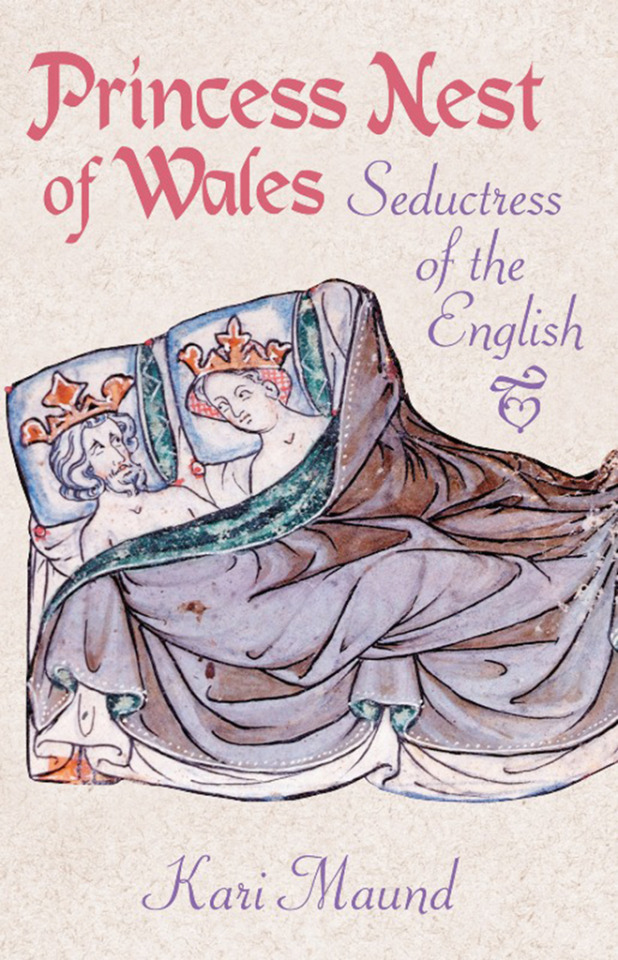
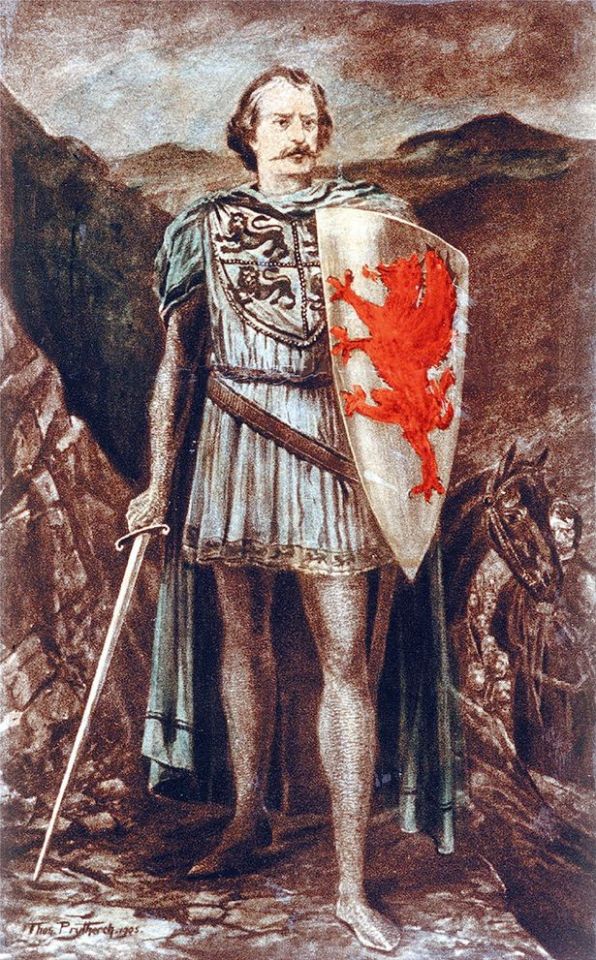
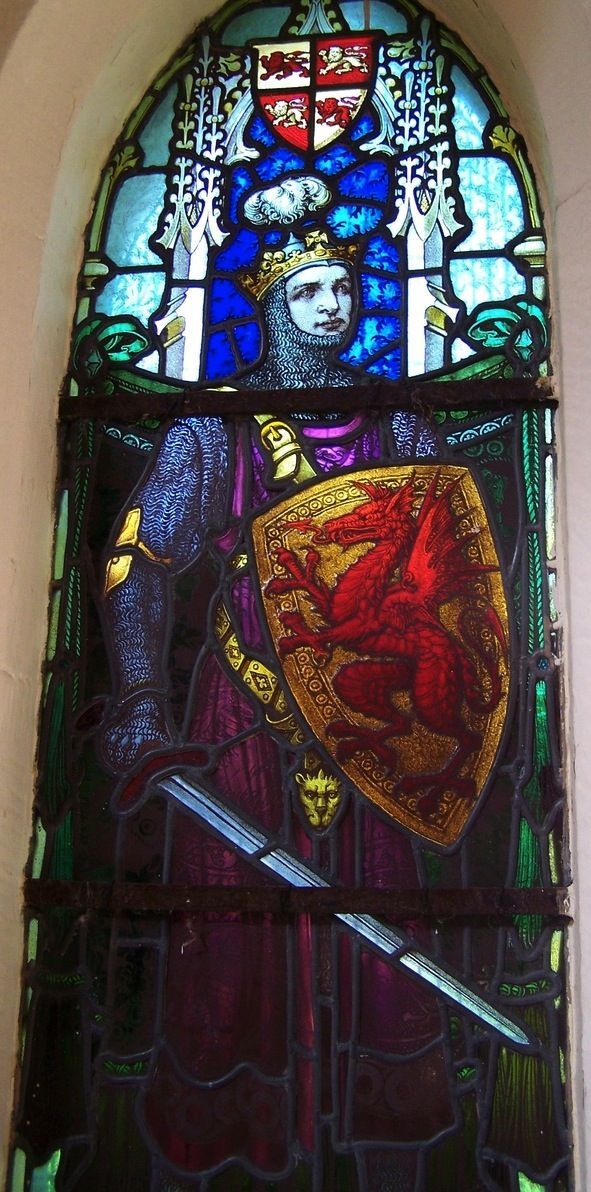
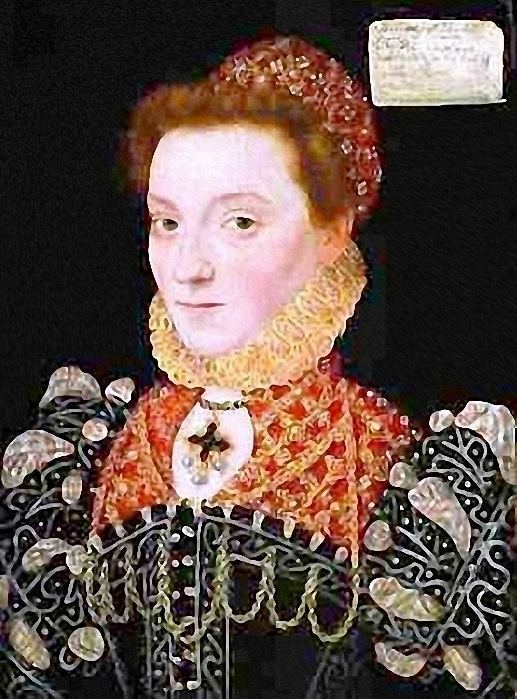

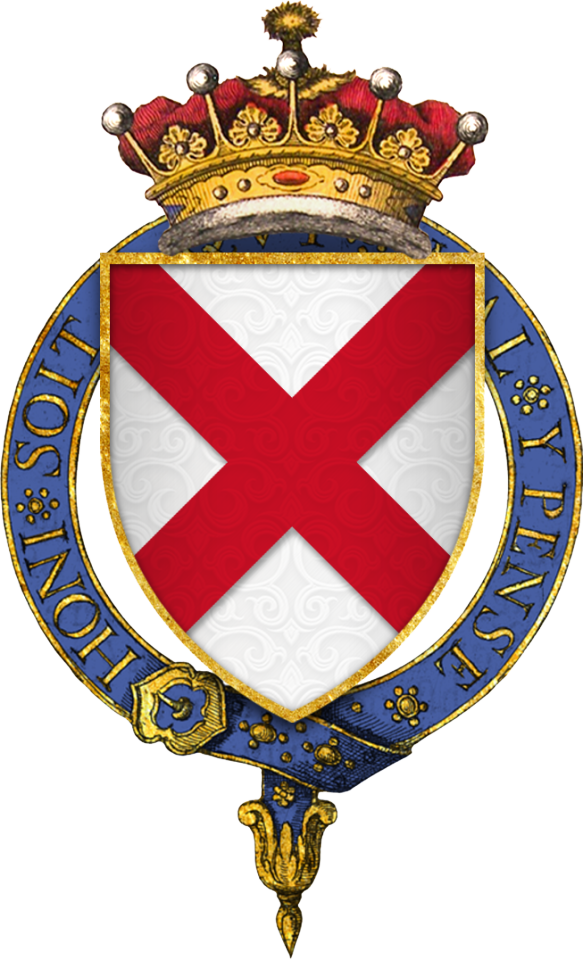
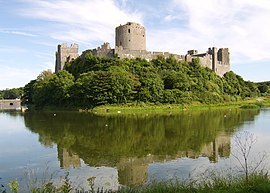
2 notes
·
View notes
Text
youtube
The brown fields of the western midlands sped by in a near blur as the train left the Birmingham conurbation and passed into rural Herefordshire. It was mid-autumn now, and the harvests completed. The apple orchards had all been picked clean of their fall fruits and sent off to market or crushed and juiced into seasonal ciders. Small herds of sheep meandered in their pastures, grazing at grass now browned as the weather cooled towards winter, their coats grown out to guard against the chill.
The one thing she didn’t see much of was people. Britain proper was prosperous, of course; the pound sterling still traded at the world’s highest exchange rates. The UK parliament had balked at the prospect of a unified currency, and so the rand and various dollars had remained, although pegged at a fixed rate relative to the central denomination. But in due course, the farmers and farriers had all migrated away from the rural midlands and taken up new employment as merchants and marketers in the more urban centers. The land was still fertile here, for some time at least, but now it belonged to the machines. The drone tractors and tillers and threshers were all idled now under barn roofs or lean-tos, their summer works finished, as if resting before taking up winter duty as plows or salt-trucks come the snows. Prayers to Demeter or Aine had been replaced with swears at Deere and AGCO, although they often carried the same futility. Even the bees had been replaced, after the great dying; their tiny buzzing wings now traded for the low hum of rotors as their simulacra flitted about carrying pollen and confusing predatory birds.
As they passed Gloucester and into Wales, the River Severn emptied into Bristol Channel and she could see all the way out to the Atlantic. The seas had risen here too, of course, as no effort of man could yet hold back them back, but Britain was largely immune from the worst. London had been bulwarked for a thousand years against the flooding of the Thames, and the port cities all braced or barricaded against the advancing surf. Wind and tidal generators dotted the horizon all around the coast, turning Nature’s fury into man’s gain. Britannia rule the waves, indeed. Some seaside properties had moved; the poorer communities had to relocate inland, and the new littoral real estate was gobbled up and repurposed into pricy condominiums or resorts for upper class holidays. The ports, again as vital to commerce as ever in earlier centuries, had multiplied, their piers expanding out over the breakers like the long fingers of industry stretching over a swirled tumbler of gin.
The train pulled into Cardiff station and Chatham exited into the station, grabbing some take-away kebab and sitting down at a wrought-iron table to take stock of her situation. The meeting with her superiors had not gone well, and she replayed the events in her head as she considered her options.
DCI Ratnayaka was supportive, at least, but they were joined in his office by a liaison from the Home Office. Whoever he was, he’d been introduced by both name and title, but she couldn't be bothered. They were all interchangeable, the bureaucrats, at least in her experience. She'd been to Westminster once to receive her Military Cross; it reminded her of a giant ant colony in both form and function, and that was before she'd been paraded around like a prized crumb stolen from Grandmama’s biscuit cupboard. The fellow might as well have been Undersecretary for the Ministry of Peace for all it would matter to her; she wouldn’t waste the effort, and anyway she was sure the relevant details had already been transmitted to her mobile. Much like those ants, she was apt to find the bureaucracy exactly where she least wanted it.
She’d recounted the details as best she could recall, and explained her concerns given the situation she’d found below deck and the deadly potential. Clearly further investigation was needed, and the Lord Swansea should be called before a HeRMES inquiry panel.
The government’s man was unswayed. It was a time of great economic distress, his counter-argument had gone, and the Government was leaning heavily on major players like the Ross Consortium to assist them in navigating the increasingly new fiscal reality. Besides, His Majesty had a personal stake in the Ross board, and it would not do for Him to be associated with untoward activities, especially of a potentially terrorist nature. The tabloids would have a field day. No, MI5 could control the message via the social networks; better to leave it alone, and stick to the cover story, than risk what might become an… indelicate investigation.
“What about the lives of the men in the skiffs?” she asked, barely masking her contempt. “Or does their indelicacy not rate investigation?”
“The pirates and smugglers? Hardly,” the Home Office man replied. “Good riddance to bad rubbish.”
“And you’re not at all concerned about the fact that we found some kind of uncontrolled toxin in Ross crates?” she said.
“My concern, Detective,” he said, chewing on her title as if it were a crisp, “is that you and Leftenant Ayobe disabled terrorists carrying weapons and illicit drugs. The world is an increasingly dangerous place, but your brave actions represent the type of inter-service collaboration that His Majesty’s father envisioned when the Union was formed, God rest his soul.”
“Yes, and I’m sure The Old Ginger would be thrilled to know his progeny was using it for political gain.”
“Detective!” her superior snapped. “Decorum, please.”
Home Office waved him off. “Your concerns are not without merit. DCI Ratnayaka argued strongly for your character and your experience in certain… high profile investigations. Given that input, the Government will allow you to continue your investigation as it relates to stolen, and,” he paused for dramatic effect, “potentially hazardous Ross goods.”
Chatham started to object, but her governor raised an eyebrow from across the desk, beckoning her to remain seated.
“You will not mention terrorism to any party. You will forward any findings outside of your jurisdiction, which includes only crimes against His Majesty’s Government or its Citizens, directly to myself and MI6. And above all, you will be discrete,” the Government’s man said with finality, rising to leave the office.
“We’ve arranged for you to meet with Lord Swansea at the Ross headquarters tomorrow,” Ratnayaka said, hoping to defuse the situation.
“And one more thing, Detective – you and Leftenant Ayobe are to be honored for your service at a ceremony at the Ministry of Defense,” Home Office continued, “on the week-end. Obviously you will be on your best behavior,” he cautioned, before closing the office door behind him.
“Fokken idioot,” Chatham swore breathlessly towards the door. She blushed as she realized her superior was still sitting at his desk, glaring. “Sorry, sir.”
“What am I going to do with you?” he asked quietly, sighing.
“The same thing you’ve always done,” the detective replied, flashing a faux-smile.
“Be careful with this one, Detective. I’d advise you not cross the powers that be, but I know you likely won’t listen. I don’t know what it is that drives you to this disrespect for authority that you cultivate, but mark my words, one day it will get you into trouble that neither I nor your record will get you out of. I just pray it’s not the kind that comes staring down the barrel of a gun,” the chief inspector cautioned.
She gathered her things and stood to leave, lingering briefly in the doorway. “I’ve been shot before, gov,” she scoffed. “Can’t say I’d much like to relive that experience, either.”
She’d boarded the train then, straight away, to return back to Cardiff, where it had all begun. She still had no idea who had called in the tip about the gun-runners, but HeRMES had been investigating arms trafficking into the Subcontinent for several months, and when the informant had mentioned there’d been a possible theft of Ross property, her governors saw a fortuitous opportunity. She’d been stationed in Wales since mustering out of the SBS; having made her peace with her father’s untimely demise, she felt she owed it to him and herself to return to the other half of her ancestral homeland.
Her Welsh was terrible but she found the climate more amenable to her complexion, and the pace of life significantly slower than the crowded streets of Cape Town. HeRMES was happy to oblige, as they’d needed someone to take up the Welsh region; the office still carried a reputation as a “backwater” even though its economy had been carried forward with the rest of the Union’s. The British crown had claimed the Welsh marshes for nearly as long as it had existed, and even though they’d mined out all the coal years ago, the Union’s industrial backbone still ran through the Brecon Beacons, whether Westminster remembered it or not.
She missed her mother, some days, but the SAR was only a holo away, and she hadn’t left behind any real friends when she’d left. Not that she’d made any here, or in university, or the service. There’d been colleagues and workplace proximate acquaintances; of course she would have, and in fact had, taken a bullet for any of her fellow soldiers. Along the way there’d even been brief affairs and lovers, men and women and whatever in between, but none so serious as to tether her in time or space. No, she was alone here, just herself and the spectre of her father, when she let herself acknowledge it, and that was how she liked it.
Can’t be disappointed if there’s no one to disappoint you, she thought to herself, huddling in the doorway of the station as a light, cold rain fell onto the streets outside. Tightening her coat around her shoulders, she stepped out into the drizzle long enough to jump into the first empty black cab she saw. The detective spoke aloud the address and the cab sped off toward her flat, throwing gentle splashes across the pedestrian walks as it rumbled through the late afternoon storm.
She sat in the car and composed herself after the long day, smoothing the strands of her hair that had come free in the rain and loosening the tie on her uniform. The route from the station took the cab down the A432 passed the dockyards, and she could see several tall Ross crates and containers, the crimson R stenciled prominently, being maneuvered throughout the gantries by the drone lifts, and it gave her an idea. She paged through the contacts list on her mobile, laughing quietly to herself as a particular name scrolled past. Opening a text dialogue, she typed out a message of exactly the type Ratnayaka had cautioned her against. “Flynn: I need a favor.”
#these two things are linked strongly in my brain for whatever reason#in case you ever wondered what it's like inside that dark cavern of crazy#the world ocean#long post
1 note
·
View note
Text
Summer Reds
A natural assumption is that, when it’s hot outside you should drink a well chilled Rosé or white wine like a crisp Sauvignon Blanc or Chardonnay, but that couldn’t be further from the truth!
Aside from putting in a pitch for an Albarino I’ve fallen hard for: Brecon Estate’s 2017 True Acacia Head Albarino, I’m pretty much drinking lighter, spicier reds and not too sweet Rosés as summer starts…
View On WordPress
#GirlsGoneWine#MadGenius#OffTheBeatenPath#ZinBitch#Albarino#Barbera#Brecon Estate#Chardonnay#Châteauneuf-du-Pape#Christian Tietje#Clos Saint Michel#Cypher "Drop Dead Legs" Grenache#Gianfranco Alessandria Barbera d&039;Alba#Grenache#Hahn#Mourvedre#Naggiar Vineyards#Rose#Sangiovese#Sauvignon Blanc#Swirl Sniff and Sip#Syrah
0 notes
Photo

Back to canal deaths this week... Love how the paper (Cambrian) didn’t even try to sound sympathetic.
"A person of the name of Meredith Arthur, who resided near Brecon, and who, by his penurious mode of living, had acquired a small property, attended the sale of some estates at the Lion Inn on Saturday last: he had purchased one lot, but having drank too freely, and his road home being by the canal, he fell into it, and was drowned. What is a little extraordinary, when he was first discovered, he was found standing nearly upright in the water, with his hat on his head and his staff in his hand. An inquest was held on the body on Monday, and the jury returned a verdict of accidental death. This is the second fatal accident which has happened on this canal within the last twelve months through inebriety."
0 notes
Photo

Premium, small batch, award winning wines from @breconestate whose vast accolades over their celebrated 10 years include being named Winery of the Year…need we say more? Ya, why not..this respected winery has garnered over 100 Platinum, AND double Gold awards. Here’s a taste of what makes @breconestate wines so irresistible/impressive, starting with: 2019 Brecon Meritage - available to purchase on their website •96pts. Best of Class. CA State Fair. June 2022 •93pts. Gold. LA Invitational. March 2022 •93pts. Somm Journal. Sept 2022 From Damien, winemaker/co-owner, should-be-author: "Humility consists of keeping your own virtues silent to allow others to discover them. In our opinion, vineyards + wine caves are rather humble. They hide their secrets away for a few years. Then only let them out disguised in a rather discreet antique green bottle. Even then the wine is cooped up in a box for up to 6 months before it finds its forever home. In the meantime, previous vintages steal the limelight. This wine is just that. Possibly a little more fruit forward + silkier than the prior vintages, a dark horse if you like. But the Estate's signature elegance, old vine complexity + fruit/tannin balance shine through. Don't be surprised if you find it wearing sunglasses at night.” Next up, 2020 Brecon Mourvedre (New Release) - available to purchase on their website •93pts. James Suckling. Oct 2022 From Damien: “For he's a jolly good fellow + so say all of us. Somewhat apt really as Mourvedre is a masculine verb in French. This, BTW, is possibly the most stonkingly powerful Mourvedre we’ve ever made. 1st class examples, like this, typically have a high proportion of hilltop fruit overlain with a framework of complex smoky + earthy notes. Ours also has a signature naturally sweet forest fruit character, smooth + velvety but with excellent length. Inevitably, all but a few cases are scheduled to wing its way to our lucky, lovely wine club members. So if you perchance, happen upon some in our tasting room or website, it will be just a fleeting guest appearance, you have been warned!" Hey ya’ll, this is a must-visit winery located on Paso’s gorgeous Vineyard Dr. (at Brecon Estate) https://www.instagram.com/p/CkJoTspSiWv/?igshid=NGJjMDIxMWI=
0 notes
Photo

#WineAndCheeseFriday, Brecon Estate, Paso Robles, CA, http://wineandcheesefriday.com/brecon-estate-paso-robles-ca/
#wine tasting#cheese tasting#new entry#paso robles#brecon estate#Maria Ferraro Beardsley#WineAndCheeseFriday#tannat#alp blossom
1 note
·
View note
Text
Places to visit in the UK that are truly amazing

Want to find out what are the best places to visit in the UK? Here’s our pick of the top16 spots that are truly amazing! The United Kingdom, to many of us it’s HOME, but it is one of the most visited countries in the world. Tourists by the thousands come to the UK each year mainly because of its cultural diversity, historical sites, unique cuisine, and much more.
The Kingdom of Great Britain has several tourist attractions and plenty of remarkable places to offer but can barely scratch the surface. So, dropping by these fantastic places when travelling in the UK is a must. Whether it is the stunning ancient landscapes, the charming towns, or medieval castles, there’s a vast option of places to explore in this part of the world.
So, keep reading and find out our pick of 25 of the best places to visit in the UK.
The best places to visit in the UK
The UK is comprised of four parts England, Scotland, Wales, and Northern Ireland. The British Isles are diverse and blatantly traditional. Perhaps the most significant pull for holidaymakers is the region’s feel of Shakespeare’s time and before, with self-proclaimed state-of-the-art, historic buildings, and eclectic nightlife. These options will help you to choose the perfect spot for your next holiday.
England
London
The number one place to visit when travelling in the UK. There are several things to do and see, that sometimes you might even forget that you are in the city. Apart from the tourist attractions, you can also find some great places to eat, shop and eclectic nightlife.
Here’s a read on “Places in London to visit that doesn’t feel like the Capital!”

The Lake District
A trendy spot in the UK, a natural park situated in northwest England. This is considered one of the most beautiful places in the UK. If you are looking for some good fun and adventure, then this is one of the best places to visit in the UK.

Stonehenge
A world-famous megalithic monument, located in a prehistoric site located in Wiltshire. The circle-shaped monument made up of many stones is unique. This uniqueness and its surroundings, including the Avebury Estate, were listed as UNESCO’s World Heritage site.

Bristol
An incredible place to spend time, particularly during summer. There are plenty of fun and exciting places to visit in Bristol. This includes the Kennet and Avon Canal, perfect for boating, cycling opportunities, and taking a stroll. The Clifton Suspension Bridge is another place you don’t want to miss while visiting the UK

Bath
A famous city and a giant tourist magnet in England. The city has a beauty of its own, and it’s the ideal place for any type of traveller. The town has plenty of excellent restaurants, cafes, and pubs. So, if you’re hoping to enjoy a pleasant meal with your loved ones, then Bath is one of the best places to visit in the UK. That’s not all! If you have relaxation on your mind, you will find that Thermae Bath Spa is a fantastic place to unwind after all the sightseeing.

Cornwall
A popular holiday destination among families and couples, and the reason is obvious. A stunning coastal town with some of the best beaches in the area. If pristine beaches are not enough, you will soon learn that Cornwall has plenty of places for hiking and adventure in every corner. After all the thrills and spills, you could spend your time simply relaxing and enjoying delicious food and drink at one of many pubs and restaurants in the area.

South Dorset
If you are looking for a place to please your eyes, then this part of England offers some of the very best landscapes. That’s not all if you search for some adventure; this is a great place to go when you are travelling in the UK. South Dorset is another popular spot for historical sites such as the Corfe Castle, located on top of a hill and grants amazing views.

Scotland
The Isle of Skye
A popular holiday destination among families and couples, and the reason is obvious. A stunning coastal town with some of the best beaches in the area. If pristine beaches are not enough, you will soon learn that Cornwall has plenty of places for hiking and adventure in every corner. After all the thrills and spills, you could spend your time simply relaxing and enjoying delicious food and drink at one of many pubs and restaurants in the area.

Isle of Mull
This beautiful destination in Scotland is one of the best places to visit in the UK. Suppose you feast your eyes on some of the finest in natural beauty. In that case, this is the most popular spot—Brimming with rugged landscape and impressive islands. This area has lots of pubs to get food and drink as well as places where you could do some decent shopping.

Edinburgh
The stunning capital of Scotland, with miles of verdant green hills and remarkable scenery for one to explore. A town with a medieval vibe that offers scenic views of the surroundings and places with huge gardens. So, if you are a history buff, you’ll find this place absolutely fascinating!

Wales
Brecon Beacons National Park
This is one of the most beautiful places to visit in the UK. You can find many travellers from all over the world visiting this place just to hike through the Black Mountains. This red sandstone mountainous area offers fantastic waterfalls, caves, and many other marvels to explore.

The Devil’s Bridge and the Hafod Estate
If there is a place in Wales you want to explore, the Hafod Estate is definitely the place to be. With 200 acres of woodlands and gardens is an incredible sight, to put it mildly. Beautifully paved trails to hike and the giant bridge and Devils Bridge Fallsis a world-famous tourist attraction located just around the corner that only adds to this place’s remarkable beauty.

Snowdonia
Located in northwest Wales among the snow-capped mountains and glacial terrain that Snowdonia National Park is recognised for. Here you will find the tallest mountain in Wales and the Mountain Railway, which goes up to the mountain’s summit.

Northern Ireland
Belfast
The capital of Northern Ireland and a city brimming with the history of the Civil war. Here you’ll find plenty of traditional Irish pubs that serve the world-famous Guinness black beer or Irish whiskey.

The Carrickfergus Castle
This is the oldest stone castle and an impressive monument on the Northern Ireland landscape. It sits on the rocky outcrop in the Gulf, known as Belfast Lough. The magnanimous castle houses historical displays of the 17th – 19th centuries. A visit here will allow you to see the gallant history of Ireland and grant a fascinating experience.

Giant’s Causeway
This is by far one of the best places to visit in the UK if you make your way to Northern Ireland. With over 40,000 polygonal basalt rock columns resulting from an old volcano that existed many years ago. This is a perfect option for those who are looking for adventure.

Travelling in the UK during Covid-19
If you’re travelling in the UK, here’s what you’ll need to know and expect during the Covid-19 pandemic.
Recently the UK went into a nationwide lockdown, and it is now being eased. However, some restrictions will likely occur in England, Scotland, Wales, and Northern Ireland till the summer.
If any travellers visit the UK, they must present a negative Covid test taken within 72 hours of arrival. However, UK residents travelling from the “red list” destinations can enter the country but must quarantine on arrival in a hotel and follow testing requirements.
As of the moment, there are no international flights from red list countries arriving in Wales or Northern Ireland right now.
Those arriving from places on the “amber list” have to quarantine for 10 days at home upon arrival, take a pre-departure test, and take a PCR test on days two and eight of their isolation.
Visitors travelling from amber destinations qualify for the ‘Test to Release’ scheme. After five days’ quarantine, you can take a PCR test and can exit quarantine if the test comes back out negative.
At the same time, anyone travelling to Wales, Scotland and Northern Ireland also cannot take advantage of the scheme.
However, it is now recommenced in the UK to take staycation trips, and travellers can use the current NHS health app as a “vaccine passport.”
Read more about the Traffic light system.
Green list countries update – Latest destinations announced for UK travel
There you have it! The most beautiful places to visit in the UK. If you would like to travel to any of these places, Travel Center offers you the best travel solutions and advice when travelling in the UK or overseas. So, call or drop us a line, and we’ll be more than happy to help you.
Read More:- Places to visit in the UK that are truly amazing
This Article, Information & Images Source (copyright):- Travel Center UK Blog
#Travel#TravelBlog#TravelBlogger#TravelVibes#Travel Center UK#HolidayMakers#Destinations#England#Scotland#Wales
0 notes